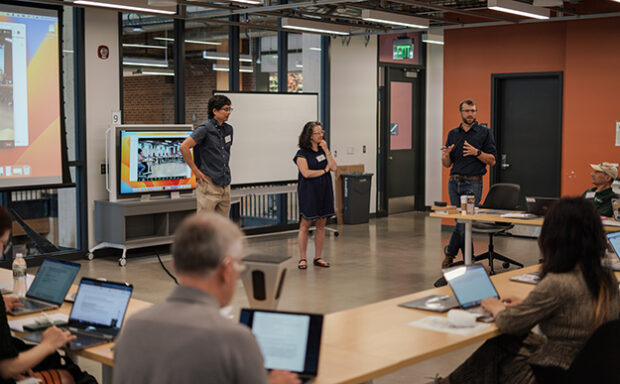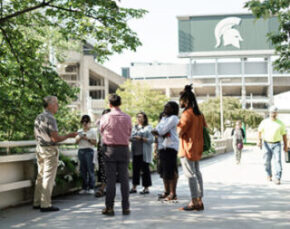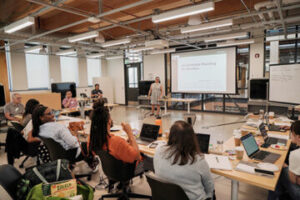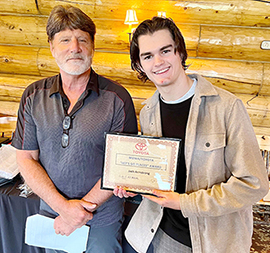Editor’s note: This is part of an occasional series of tips gleaned from the most recent annual conference of the Society of Environmental Journalists.
By Devin Anderson-Torrez
BOISE, Idaho – Utilities are an undercovered beat, yet they represent a source of great stories at the intersection of human, energy and environmental issues.
What they decide – quickly, slowly or not at all – will be a key factor in whether the battle against climate change is a winning one, said Sammy Roth, a reporter at the LA Times, who spoke at the recent annual conference of the Society of Environmental Journalists.

 Michigan State University has become the hub of an exciting initiative as the SciComm Identities Project (SCIP) workshop on science communication begins today and runs until the end of the week. A group of 10 SCIP fellows have embarked on a transformative journey, aiming to deepen their understanding of podcasting, gain expertise in media relations, and apply this knowledge to their academic endeavors
Michigan State University has become the hub of an exciting initiative as the SciComm Identities Project (SCIP) workshop on science communication begins today and runs until the end of the week. A group of 10 SCIP fellows have embarked on a transformative journey, aiming to deepen their understanding of podcasting, gain expertise in media relations, and apply this knowledge to their academic endeavors The participants of the workshop spent the day engrossed in a variety of activities designed to enhance their skills. They delved into the realm of storytelling tools, refining their creative writing abilities and engaging in stimulating discussions on applying effective media strategies to effectively communicate their research.
The participants of the workshop spent the day engrossed in a variety of activities designed to enhance their skills. They delved into the realm of storytelling tools, refining their creative writing abilities and engaging in stimulating discussions on applying effective media strategies to effectively communicate their research.
 With the SCIP workshop now underway, the fellows are set to acquire invaluable skills and knowledge that will empower them to effectively communicate scientific concepts and research findings to a wider audience. This initiative is a testament to the commitment of Michigan State University and its partner institutions in fostering a more inclusive and diverse science communication landscape.
With the SCIP workshop now underway, the fellows are set to acquire invaluable skills and knowledge that will empower them to effectively communicate scientific concepts and research findings to a wider audience. This initiative is a testament to the commitment of Michigan State University and its partner institutions in fostering a more inclusive and diverse science communication landscape.